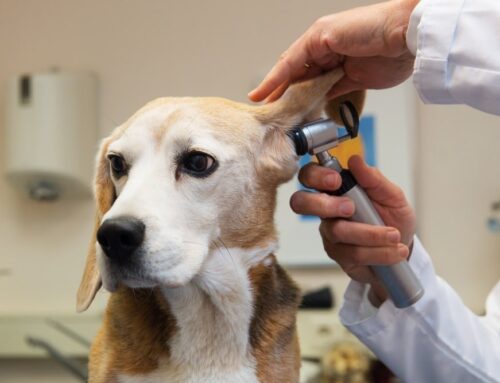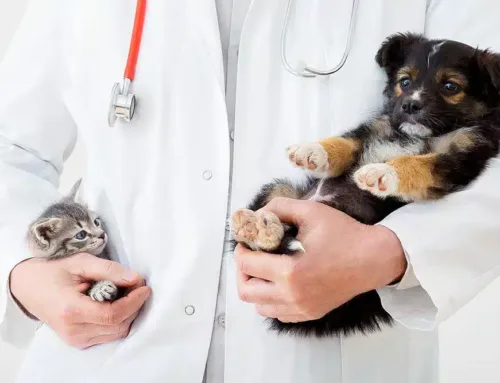Veterinary medicine isn’t all puppy kisses and kitten cuddles—much of the time, the work is not only mentally and physically exhausting, but also potentially dangerous and life-threatening. Aggressive pets, large animals, and zoonotic diseases can harm the veterinary team and cause lifelong consequences. Still, veterinary medicine is a wonderfully rewarding, fulfilling, chosen career path, despite the stress and the hazards, with the positives balancing out the negatives.
The veterinary profession has always been challenging—and veterinary professionals have welcomed the challenges—but, as in various industries, the pandemic highlighted and exacerbated our mental health issues. Therefore, our Emerald Animal Hospital team wants to spotlight the problems and challenges facing today’s veterinary professionals.
Stressors facing veterinary professionals
Every job involves stress-causing scenarios, but veterinary medicine by its very nature involves challenges that other professionals do not face that can negatively impact mental health. The most common include:
- Patient suffering — Veterinary professionals love animals, and being forced to watch a pet suffer, especially because of lack of finances or lack of care, is heartbreaking. While euthanasia can be seen as a blessing in some cases, that is still one of the most difficult aspects of veterinary medicine that can slowly affect mental health.
- Client expectations — As much as veterinary professionals want—and strive—to be the superheroes of the animal world, we can’t fix every pet. Nor can we fix every pet for free, but every day veterinarians have to deliver bad news and discuss costly, yet life-saving, treatments for pets’ problems.
- Long work hours — When you are asked to drop off your pet at 8 a.m. for surgery, know that the veterinary team arrived at work long before to prepare for the day and your pet’s surgery or treatment. Then, at the end of normal business hours, they are likely finishing up lab work, treating hospitalized patients, and calling back clients. This becomes a vicious cycle, because the team not only almost always arrives early, but also stays late. The long work days leave little time for family, friends, and their own pets, and the veterinary professional’s health suffers.
- Excessive workload — The veterinary industry is horribly understaffed, but because they are intensely dedicated to helping animals, every staff member always endeavors to see as many patients as possible, which often leads to an overbooked appointment schedule and an overwhelming workload.
- Overwhelming debt — The average cost of four years of veterinary school is more than $200,000 for in-state students, on top of the costs of four years of undergraduate school. When they graduate, veterinarians start out with fairly low salaries, especially compared with their physician counterparts. Salaries that are not equal to the level and cost of their education make buying a house, raising a family, purchasing a practice, or saving for retirement extremely difficult for most veterinary professionals. Veterinary technicians also struggle with student-loan burdens and most receive minimal pay with few benefits for their skills and knowledge. Low salary and benefit packages take a substantial toll on veterinary professionals’ mental health, especially those who are trying to build their careers and plan for their future.
Effects on veterinary professionals
Many veterinary professionals are Type A personalities, which benefits patients under their care, but at the cost of their own mental and physical health. Type A individuals are typically high achievers and workaholics—traits that helped lead them to their career choice and typically make them excellent veterinarians, but can, unfortunately, make them more prone to stress and cardiovascular disease.
Veterinary professionals confront many burdens during their career that can affect their mental and emotional health. They embrace the rewards of caring for and saving animals, but do not always deal well with the negative aspects and unique stressors of the veterinary industry, as the following statistics confirm:
- Astronomical stress, anxiety, and depression levels — The most recent veterinary wellbeing study conducted by Merck Animal Health revealed an increase in serious psychological distress among all veterinary professionals. The percentage of veterinarians with serious psychological distress increased to 9.7% in 2021, compared with 6.4% in 2019. Support staff members reported that 18.1% claimed serious psychological distress, nearly double the veterinarian rate.
- Increased burnout rate and compassion fatigue — While any career professional can experience burnout because of the demands of their job, those in care-giving professions tend to have higher burnout rates. Veterinarians have a higher burnout rate than physicians, with their burnout scores nearly 40% greater, according to the Merck study. Additionally, compassion fatigue (i.e., a mental health challenge that affects people in care-giving professions) is a serious problem for many veterinary professionals. Compassion fatigue hits hardest the empathetic professionals who continuously have to struggle with the emotional burdens of patients, clients, and colleagues. Too much exposure to others’ trauma erodes away the empathetic feelings required to care for patients. Burnout can more easily be prevented and managed, but most who suffer from compassion fatigue require help from a mental health professional.
- A high suicide rate — According to a Centers for Disease Control and Prevention (CDC) study, female veterinarians are 3.5 times more likely to die by suicide than the general population. Support staff also suffer from poor mental health, with male veterinary technicians claiming a suicide rate five times higher than that of the general population.
How to support veterinary professional mental health

Although pet owners obviously cannot remedy some of the issues facing veterinary professionals, you can help by being a responsible, courteous pet owner. Support your Emerald Animal Hospital team—and every veterinary professional—by following these tips:
- Purchase pet health insurance — Pet health insurance will help prevent those impossible decisions when your budget doesn’t have enough wiggle room for an emergency.
- Arrive on time — When schedules are overbooked—to see every pet possible—with too few team members, your on-time arrival and being prepared for your pet’s appointment can make a huge difference in helping us stay on track, not keep other clients and pets waiting, and not leaving well after closing time.
- Say “Thank you” — Heartfelt gratitude can make a difficult day so much better, and brighten our spirits after a tough loss. We will always return the thanks for trusting us with your pet’s care.
We chose a career that saves animals, and we cannot think of anything more rewarding, yet the burden of holding the life of a patient—a patient who cannot understand why they are in pain— in your hands can weigh you down. We hope that we have helped you understand the unique stressors every veterinary professional faces, and that you will help us by doing what you can to alleviate these stressors, so that together, we can more effectively care for your pet.
Give our Emerald Animal Health team a call to schedule your furry pal’s next wellness visit, or drop a thank-you card in the mail. We love to hear from you as much as we love caring for your beloved pet!









Leave A Comment